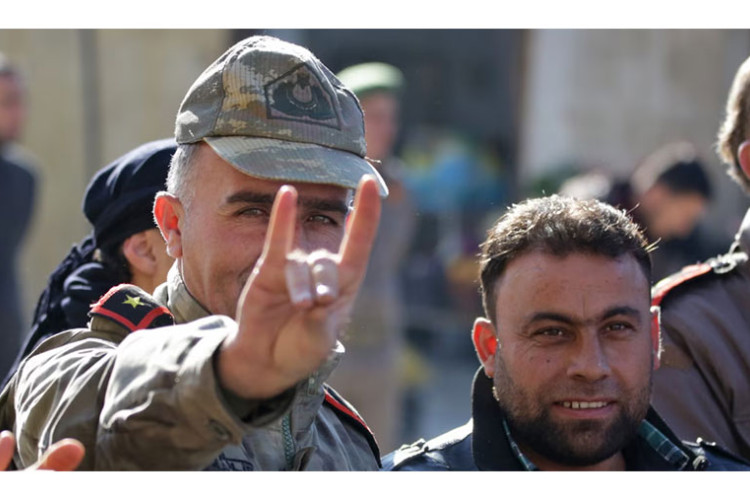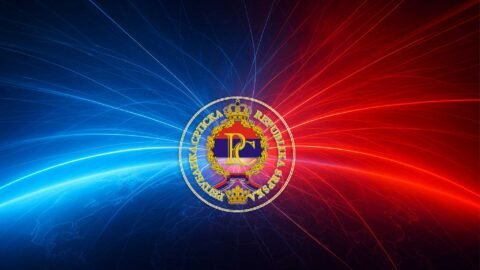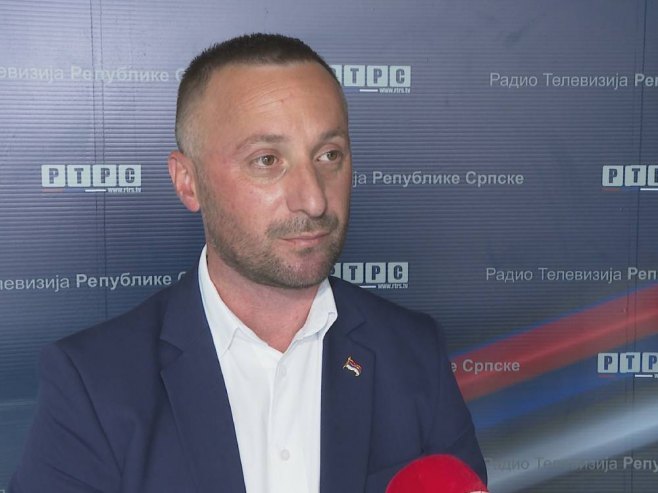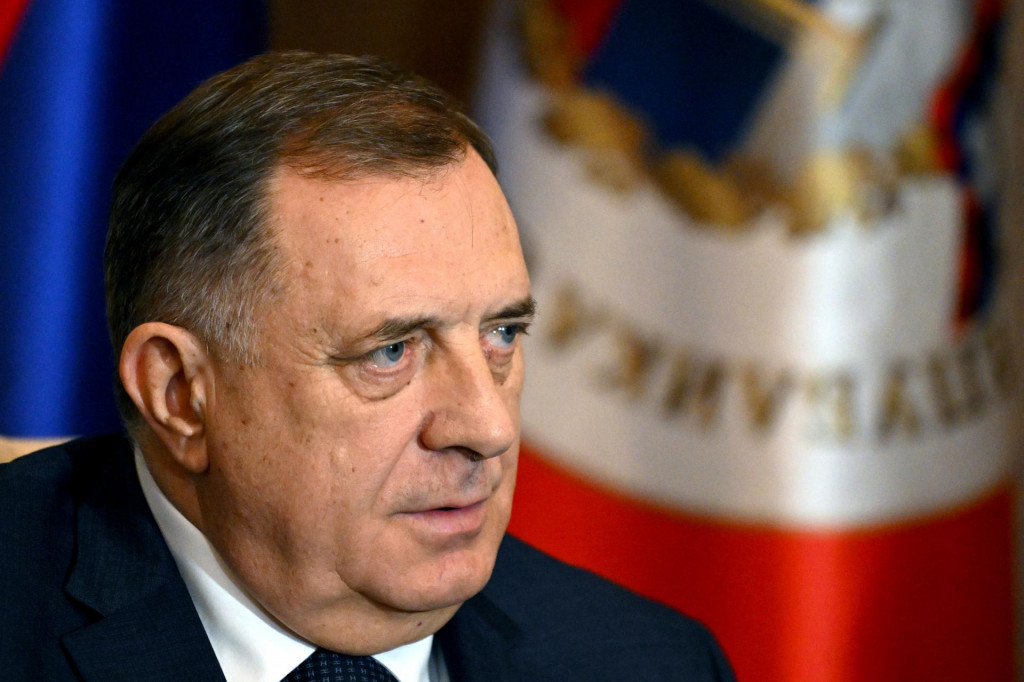Members of the ultra-nationalist Turkish group “Grey Wolves,” which has been banned in some European countries due to its ideology and violent and terrorist activities since 2013, continue to operate freely in BiH, expanding their position and influence with the help of some top SDA officials.
This was stated by terrorism expert Dževad Galijašević in a comment for “Glas Srpske,” discussing the recent uproar over the Austria-Turkey football match, where Turkish national team player Merih Demiral celebrated his two goals by making the “wolf salute” symbol of the “Grey Wolves,” which caused condemnation in some countries, especially in Austria.

Galijašević explained that the reaction occurred because members of this movement are known for their extremism and ultra-nationalism, as well as attacks on minority communities in Turkey and abroad.
Intelligence Service and SDA
According to Galijašević, the “Grey Wolves” group is under the direct control of Turkey’s military-intelligence service, which initially initiated their formation.
- “The intelligence service still finances and installs them as needed throughout Europe. They have been present for years in Europe and BiH. Unfortunately, few understand this neo-Ottoman behavior of Turkey. In Sarajevo, they talk about some ‘Serbian world,’ while hiding these and similar things. Their work in BiH is currently focused on intelligence and ideology. Among other things, they aim to counteract the Wahhabi influence of Saudi Arabia in BiH and the Iranian secret service. This is done through the restoration of mosques and historical buildings from the Ottoman period in the Balkans, various NGOs, and media. Turkey’s ultimate goal is to expand the soft power of neo-Ottomanism in BiH,” Galijašević said.
He also noted that Austria has long been aware of this problem, having closed over 60 “wild” Bosniak and Turkish mosques in Vienna during a well-known police operation “Palmira,” in which several BiH citizens were arrested.
- “Austria is aware of Turkish radicalism, or rather, Erdoganism, which is a form of Islamism and Ottomanism. They know that Turkey is the most influential member of the Muslim Brotherhood, an organization labeled as terrorist in many countries. One of the largest centers of the Muslim Brotherhood, besides London and Doha, is in Ankara. The ‘Grey Wolves’ are part of this large project to install Islamic radicalism in certain areas and then create internal potentials for possible destructive actions. Turkey’s policy towards BiH is not well-intentioned,” Galijašević emphasized.
Military Training
General Alparslan Türkeş founded the “Grey Wolves” after the 1960 military coup. The group was initially conceived as a cultural and educational movement, but after Türkeş established the Nationalist Movement Party, which was highly militant at the time, the “Grey Wolves” became the paramilitary wing of this party. Their primary function was to stop leftist political life developing in universities and major Turkish cities. The “Wolves” were the main drivers and executors of political violence aimed at left-leaning Kurdish separatism. This organization differed from other political party-linked groups due to its paramilitary training, which former member Kartal Demironu publicly spoke about, stating that they were trained by retired Turkish military generals.

This training enabled the “Wolves” to be recruited into the ranks of the Turkish Gendarmerie’s intelligence unit during the 1980s and 1990s, which was accused of political assassinations of Kurdish political activists and businessmen. They were also sent to Chechnya during the two wars, and their most extreme action was the attempted assassination of Pope John Paul II by member Mehmet Ali Agca.
Expanding Influence
Many European countries view the “Grey Wolves” as an extremist and even terrorist organization due to their paramilitary history and their highly racist and xenophobic views, and thus ban their activities. Kazakhstan’s Supreme Court banned the group in 2004, labeling it a terrorist association. The Austrian government banned the “Grey Wolves” symbol and the aforementioned hand gesture in 2019. France banned their activities in 2020, accusing them of extremely violent actions. There have been proposals to introduce a ban at the EU level, but this has never materialized despite numerous reports highlighting the harmful and extreme activities of this group in Europe.
The Balkan Investigative Reporting Network (BIRN) highlighted their presence within BiH a few years ago, allegedly established with the arrival of Hussein Čakalija in Mostar, an informal leader. According to BIRN, the central office in Ankara and the Turkish Embassy in Sarajevo approved this “Grey Wolves” branch’s activities. They noted that the choice of a “brotherly country in the Balkans” for Čakalija was not accidental but a logical continuation of monitoring Turkish activities, which he aims to achieve through the organization founded in BiH.
Turkish Radicalism
Supporters of the “Grey Wolves,” who enjoy backing from the current Turkish authorities, believe in the superiority of the “Turkish race” and strive for the unification of all Turkish peoples into one large and powerful state, stretching from the Balkans through Central Asia to China. The ultimate goal is to establish “Turan” – an ethno-national and Muslim entity stretching from Anatolia to Eastern China, uniting all Turkish ethnic groups. The Turkish perception and ideology of the current authorities is the belief that Turkish peoples originally lived in Asia and began migrating towards the modern Balkans. Therefore, they hold the view that the homeland of the Turkish people extends from the southern borders of the former Yugoslavia to Beijing. They view the defeat of the Ottomans in the Balkans as a great tragedy that they cannot accept, which is why they have been trying to solidify their position and interest in the Balkans for the past few decades.
Ban in Austria
The “Grey Wolves” salute is banned in Austria, with fines reaching up to 4,000 euros. The gesture involves raising the little finger and index finger while pressing the thumb, middle, and ring finger together. The Austrian government banned this gesture and the symbol of the “Grey Wolves,” representing a wolf, in 2018.
Source: Glas Srpske








